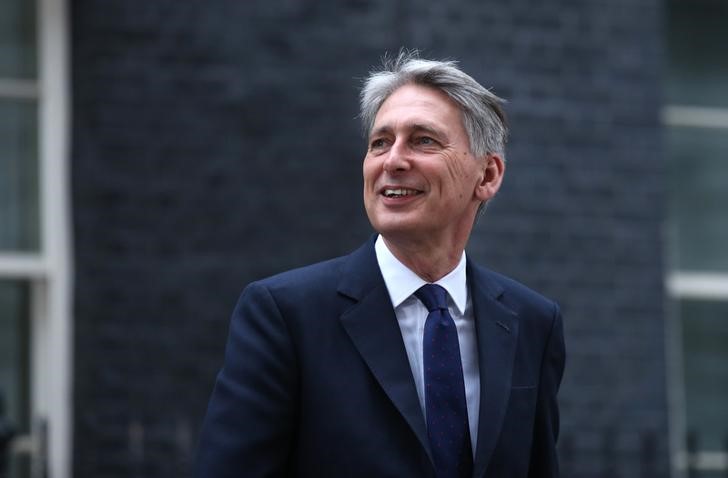VIENNA (Reuters) - British Foreign Secretary Philip Hammond voiced confidence on Thursday that European Union countries will back London's call to amend the EU's founding treaties after Austria opened the door to changes that could help keep Britain in the bloc.
Prime Minister David Cameron, seeking to put an end to a decades-old rift within his Conservative party over Britain's place in Europe, has promised to negotiate a settlement with Brussels and hold a referendum on EU membership by the end of 2017.
In Vienna for talks with his Austrian counterpart Sebastian Kurz, Hammond told reporters London's appeal for treaty change had elicited a "varied" response so far despite Kurz's backing for such measures if needed.
"We very much appreciate the support that (Kurz) has shown for this agenda. We very much appreciate (German) Chancellor (Angela) Merkel's comments last week saying that treaty change was not impossible," Hammond said.
"But of course we are in a negotiation. We understand that and we expect that some of our partners will set out hard-line positions as part of their negotiating strategy."
Still, he said: "We have a very high confidence that the overwhelming majority of the European member states want to find a way to keep Britain inside the European Union and that they understand that addressing these issues that are of such concern to the British people are essential to make that possible."
He said the EU had in the past shown "incredible flexibility and ingenuity" in handling difficult problems and that he hoped this would again be the case, allowing his government to recommend a "yes" vote on keeping Britain within the bloc.
Among the EU reforms sought by Britain are tighter restrictions on EU migrants' access to welfare benefits.
Kurz said Austria sought to defend free movement within the EU -- Cameron has set out plans to discourage EU migration into Britain -- but said this did not mean EU citizens should be able to cherry-pick the most attractive social benefits.
He also expressed sympathy for London's call for taking decisions in Europe at the level closest to the people affected.

"It is necessary for now to look at what changes we can make in the framework of directives and regulations. If treaty change is also needed for the necessary processes of change than I am of the opinion we should go this way. I am firmly convinced the Treaty of Lisbon is surely not the last I will see."